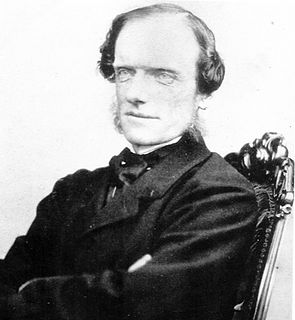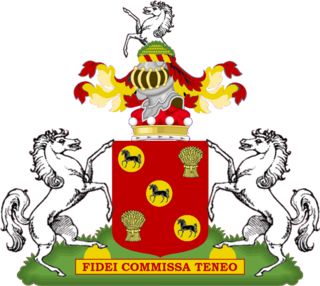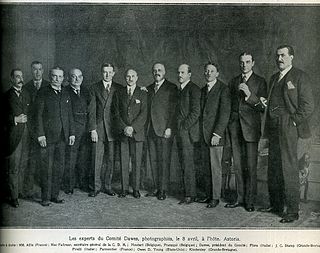Viscount Molesworth, of Swords in the County of Dublin, is a title in the Peerage of Ireland. It was created in 1716 for Robert Molesworth. He was made Lord Molesworth, Baron of Philipstown, of King's County, at the same time, also in the Peerage of Ireland. Molesworth had been invested as member of the Irish Privy Council in 1697, represented Camelford, Lostwithiel, East Retford and Mitchell in the British House of Commons and served as British Ambassador to Denmark. His elder son, the second Viscount, notably served as Ambassador to the Kingdom of Sardinia, the Grand Duchy of Tuscany and the Republic of Venice. He was succeeded by his younger brother, the third Viscount. He was a Field Marshal in the Army. On the death of his son, the fourth Viscount, this line of the family failed, and the titles passed to the latter's first cousin, the fifth Viscount. He was the eldest son of the Hon. William Molesworth, third son of the first Viscount. His son, the sixth Viscount, was a Major-General in the Army, who was lost in the wreck of Arniston. On his death this line of the family also failed and the titles were inherited by his second cousin, the seventh Viscount. He was the eldest son of Richard, third son of the Hon. William Molesworth, third son of the first Viscount. He was succeeded by his nephew, the eighth Viscount. As of 2010, the titles are held by the latter's great-grandson, the twelfth Viscount, who succeeded his father in 1997.
Viscount Daventry, of Daventry in the County of Northampton, is a title in the Peerage of the United Kingdom. It was created on 6 May 1943 for Muriel FitzRoy, in honour of her late husband, the Hon. Edward FitzRoy, Speaker of the House of Commons from 1928 until his death in 1943. The first Viscountess was the sister of Frank Douglas-Pennant, 5th Baron Penrhyn, whilst Edward FitzRoy was the second son of Charles FitzRoy, 3rd Baron Southampton, and a male-line descendant of Charles FitzRoy, 2nd Duke of Grafton. Lady Daventry was succeeded by her eldest son, the second Viscount. He was a captain in the Royal Navy. He was succeeded by his nephew, the third Viscount. His father had assumed the additional surname of Newdegate, which was that of his father-in-law. As of 2017 the title is held by his son, the fourth Viscount, who succeeded in 2000. As a male-line descendant of both the third Baron Southampton and the second Duke of Grafton, he is also in remainder to those peerages.

Baron Auckland is a title in both the Peerage of Ireland and the Peerage of Great Britain. The first creation came in 1789 when the prominent politician and financial expert William Eden was made Baron Auckland in the Peerage of Ireland. In 1793, he was created Baron Auckland, of West Auckland in the County of Durham, in the Peerage of Great Britain. Eden notably served as Chief Secretary for Ireland, Ambassador to Spain, and President of the Board of Trade. His second son, the second Baron, was also a politician and served as Governor-General of India. In 1839 he was created Baron Eden, of Norwood in the County of Surrey, and Earl of Auckland, in the Peerage of the United Kingdom. However, he never married, and the barony of Eden and the earldom became extinct on his death while he was succeeded in the baronies of Auckland by his younger brother, the third Baron. He was Bishop of both Sodor and Man and Bath and Wells. The titles descended from father to son until the death of the sixth Baron in 1941. He was succeeded by his cousin, the seventh Baron. He was the son of the Hon. George Eden, third son of the fourth Baron. He was succeeded by his younger brother, the eighth Baron. As of 2013, the titles are held by the latter's grandson, the tenth Baron, who succeeded his father in 1997.
Baron Kensington is a title that has been created three times, in the Peerages of England, Ireland and the United Kingdom.

Baron Massy, of Duntryleague in the County of Limerick, is a title in the Peerage of Ireland. It was created on 4 August 1776 for Hugh Massy, who had previously represented County Limerick in the Irish House of Commons. His son, the second Baron, also represented this constituency in the Irish Parliament. His great-grandson, the sixth Baron, sat in the House of Lords as an Irish Representative Peer from 1876 to 1915. He left such heavy debts that in 1924 the family were evicted from their home.

Baron Amherst of Hackney, in the County of London, is a title in the Peerage of the United Kingdom. It was created on 26 August 1892 for the former Conservative Member of Parliament William Tyssen-Amherst, with remainder, in default of male issue, to his eldest daughter Mary and her issue male. Tyssen-Amherst had previously represented West Norfolk and South West Norfolk in the House of Commons. He was succeeded according to the special remainder by his daughter Mary. She was the wife of Colonel Lord William Cecil, third son of William Cecil, 3rd Marquess of Exeter. As of 2017 the title is held by their great-great-grandson, the fifth Baron, who succeeded his father in 2009. As a male-line descendant of the third Marquess of Exeter he is also in remainder to this peerage and its subsidiary titles the earldom of Exeter and barony of Burghley.

Baron Kilbracken, of Killegar in the County of Leitrim, is a title in the Peerage of the United Kingdom. It was created in 1909 for the senior civil servant Sir Arthur Godley. He was Permanent Under-Secretary of State for India between 1883 and 1909. As of 2010 the title is held by his great-grandson, the fourth Baron, who succeeded his father in 2006.

Baron Newall, of Clifton-upon-Dunsmoor in the County of Warwick, is a title in the Peerage of the United Kingdom. It was created on 18 July 1946 for Marshal of the Royal Air Force Sir Cyril Newall. He was Chief of the Air Staff between 1937 and 1940 and Governor-General of New Zealand between 1941 and 1946. As of 2017 the title is held by his only son, the second Baron, who succeeded in 1963.

Baron Stamp, of Shortlands in the County of Kent, is a title in the Peerage of the United Kingdom. It was created in 1938 for the civil servant, industrialist, economist, statistician and banker, Sir Josiah Stamp. The second Baron, Wilfred Carlyle Stamp, holds the record for having held a peerage for the shortest length of time. On 16 April 1941, the first Baron Stamp was killed by a German bomb, as was his son Wilfred. Legally, the son was presumed to have died a fraction of a second after his father, and therefore is supposed to have succeeded to the title for that short amount of time. The second Baron was succeeded by his younger brother, the third Baron. As of 2017 the title is held by the latter's son, the fourth Baron, who succeeded in 1987. Like his father he is a physician.

Baron Parmoor, of Frieth in the County of Buckingham, is a title in the Peerage of the United Kingdom. It was created on 16 January 1914 for the lawyer and politician Sir Charles Cripps. He and his wife, Marian Ellis, were anti-war activists. Two of his sons, the second and third Baron, both succeeded in the title. The third Baron was succeeded by his son, the fourth Baron. As of 2010 the title is held by the latter's first cousin, the fifth Baron, who succeeded in 2008. He is the grandson of Major the Hon. Leonard Harrison Cripps, third son of the first Baron.

Baron Borwick, of Hawkshead in the County of Lancaster, is a title in the Peerage of the United Kingdom. It was created on 20 July 1922 for the businessman Sir Robert Borwick, 1st Baronet. He was chairman of George Borwick & Sons Ltd, manufacturers of baking and custard powders. The company had been founded by his father George Borwick. Before his elevation to the peerage, Borwick had been created a baronet, of Eden Lacy in the Parish of Lazonby in the County of Cumberland, on 1 July 1916. His eldest son, the second Baron, was succeeded by his younger brother, the third Baron. The latter was succeeded by his son, the fourth Baron. As of 2014 the titles are held by his nephew, the fifth Baron, who succeeded in 2007. Lord Borwick is the eldest son of the Hon. Robin Borwick, third son of the third Baron. The family tomb is maintained at the Cimetières du Château in Nice.
Baron Cawley, of Prestwich in the County Palatine of Lancaster, is a title in the Peerage of the United Kingdom. It was created in 1918 for the Liberal politician Sir Frederick Cawley, 1st Baronet. He had previously represented Prestwich in the House of Commons and served as Chancellor of the Duchy of Lancaster from 1916 to 1918. Before his elevation to the peerage, Cawley had been created a baronet, of Prestwich in the County Palatine of Lancaster, in the Baronetage of the United Kingdom, in 1906. His grandson, the third Baron, notably served as Deputy Chairman of Committees in the House of Lords from 1958 to 1967. As of 2011 the titles are held by the latter's eldest son, the fourth Baron, who succeeded in 2001.
Baron Clwyd, of Abergele in the County of Denbigh, is a title in the Peerage of the United Kingdom. It was created in 1919 for the Liberal politician Sir John Roberts, 1st Baronet, who had previously represented Denbighshire West in the House of Commons. He had already been created a Baronet, of Brynwenallt in the parish of Abergele in the County of Denbigh, in the Baronetage of the United Kingdom in 1908. Lord Clwyd's father John Roberts had earlier been Member of Parliament for Flint from 1878 to 1892. As of 2016 the titles are held by his great-grandson, the fourth Baron, who succeeded his father in 2006.
Baron Rockley, of Lytchett Heath in the County of Dorset, is a title in the peerage of the United Kingdom. It was created on 11 January 1934 for the Conservative politician Sir Evelyn Cecil, who had earlier represented Hertfordshire East, Aston Manor and Birmingham Aston in the House of Commons. He was the son of Lord Eustace Cecil, fourth son of James Gascoyne-Cecil, 2nd Marquess of Salisbury. The first baron was married to the horticulturist Alicia Amherst. As of 2019 the title is held by their great-grandson, the fourth baron, who succeeded his father in 2011.
Baron Rathcavan, of The Braid in the County of Antrim, is a title in the Peerage of the United Kingdom. It was created on 11 February 1953 for the Unionist politician Sir Hugh O'Neill, 1st Baronet. He had already been created a Baronet, of Cleggan in the County of Antrim, on 17 June 1929. O'Neill was the third son of Edward O'Neill, 2nd Baron O'Neill and the uncle of the Prime Minister of Northern Ireland Terence O'Neill, Baron O'Neill of the Maine. Lord Rathcavan was also a male-line descendant of Edward Chichester, 1st Viscount Chichester. He was succeeded by his eldest surviving son, the second Baron. He succeeded his father as Unionist Member of Parliament for Antrim in 1952, a seat he held until 1959, and was later a member of the Parliament of Northern Ireland. As of 2014 the titles are held by his son, the third Baron, who succeeded in 1994.

Robert Molesworth Kindersley, 1st Baron Kindersley was an English businessman, stockbroker, merchant banker, and public servant who organised the National Savings movement.

Granville Charles Gomer Gordon, 13th Marquess of Huntly, styled Earl of Aboyne until 1987, is a Scottish peer and the Premier Marquess of Scotland.

Brigadier Hugh Kenyon Molesworth Kindersley, 2nd Baron Kindersley of West Hoathly was a British Army officer, businessman, banker. His father was businessman Robert Kindersley, 1st Baron Kindersley GBE.
Robert Hugh Molesworth "Hugo" Kindersley, 3rd Baron Kindersley DL was a British peer, politician and businessman.
Rupert John Molesworth Kindersley, 4th Baron Kindersley is a British peer and businessman.











